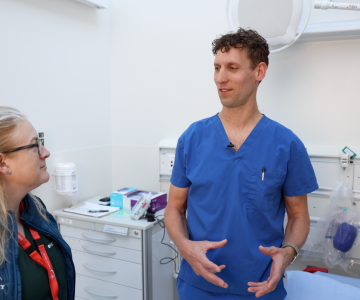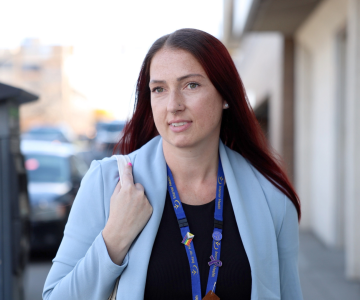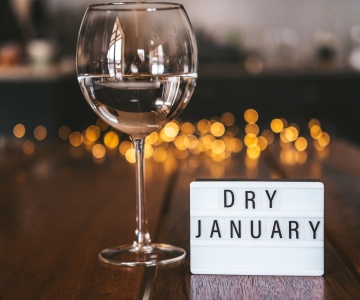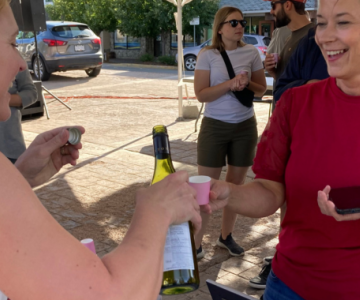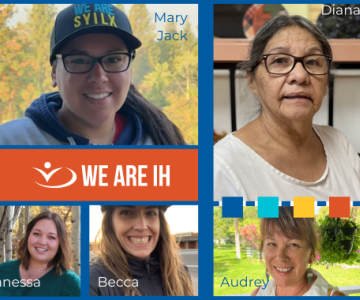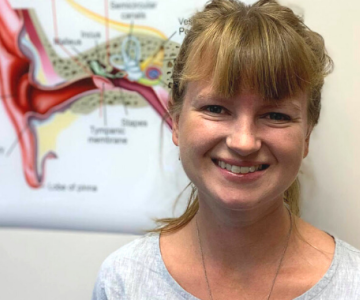Breadcrumb
Explore Stories
Health & Wellness
With the holiday season here, many of us will be gathering to celebrate with family and friends. Celebrations often include food and sometimes alcohol.
While enjoying wine, beer and spirits can be a pleasurable part of holiday celebrations, drinking too much can have harmful consequences, both short and long-term.
Health & Wellness
People visit emergency departments (EDs) for any number of reasons. For those with alcohol use disorder (AUD) or other alcohol-related health issues, the staff in the ED can be their first, and only, contact with health care.
Now, thanks to new resources, protocols, readily available medications and specialized training, those who arrive at an ED in the Interior Health region can get the help they need to change their relationship with alcohol.
Health & Wellness
The Interior region is home to many local wineries, breweries, cideries and distilleries—but is also home to some of the highest drinking rates in the province.
If you find yourself uncomfortable with your relationship to alcohol, we offer a detox program that can be done discreetly from your own home.
Health & Wellness
With New Year’s around the corner, many of us turn our thoughts to resolutions. January 1 can be a springboard for a fresh start, new habits and big goals.
The original Dry January started in the UK sometime around 2013, and since then has become a global movement. Since 2016, the Go Dry challenge for the Canadian Cancer Society has also inspired hundreds of thousands of people across the country to give up alcohol and go dry for 31 days starting January 1.
But going dry may not be the right goal for everyone, says Dr. Andy Delli Pizzi, a medical health officer with Interior Health. “While many people might feel ready and able to not drink for a month, an ‘all or nothing’ approach can be unrealistic for some,” says Dr. Delli Pizzi.
“People who choose to not go dry can still try to lower their alcohol consumption to reduce the adverse health effects of alcohol. Choosing small steps over big ones can give you a higher chance of success of meeting your goals and give you something to celebrate.”
Health & Wellness
If you or a loved one is ready to get help for alcohol or opioid use disorder, help is now as close as a few keyboard clicks away.
Interior Health’s Virtual Addictions Medicine (VAM) Clinic provides rapid access to doctors and nurses with special training in addiction medicine over the phone, from anywhere in the Interior Health region.
Since opening three years ago, more than 2,000 people have accessed the clinic’s services. Clients receive effective, proven treatments for substance use to help them improve their health and wellness and live life on their terms.
Health & Wellness
If you or someone you know has taken the brave step to seek treatment for alcohol or drug use, the journey to recovery and health will be full of transitions. A transition might look like finishing detox, waiting for another service such as counselling, moving back home or into a new community, or starting a new job.
Moving from a structured, safe environment like a treatment centre or hospital, to an unstructured one, can also leave someone feeling vulnerable. While periods between endings and beginnings can bring feelings of accomplishment and joy, they can also be challenging.
This is the thinking that went into Interior Health’s Aftercare program.
Health & Wellness
Nestled just east of the Cascade Mountains along Highway 3, at the juncture of the Similkameen and Tulameen rivers, lies Princeton. The small town of just over 2,800—whose slogan is “Where rivers and friends meet”—is known for its forestry, mining and ranching, as well as outdoor pursuits like bird watching and fishing.
It’s also a town that’s becoming known for its resiliency. Princeton has seen more than its share of adversity, from devastating floods in 2021, to wildfires and evacuations, to a persistent boil water notice since Dec. 2021. There’s a “can-do” ethic shared by Princeton residents, and these disasters have brought the town and residents together.
It’s this same sense of community and can-do ethic that have brought the community together to help transform conversations around alcohol.
Community & Culture
Content warning: residential schools, death. The information and material presented here may cause unpleasant feelings or thoughts for some people. Many individuals find it helpful to discuss these feelings in a supportive and trusting environment. Please reach out to the supports most appropriate to your individual needs:
KUU-US (Aboriginal) Crisis line at 1-800-588-8717
BC Crisis Line at 310-6789
In 2021, the government of Canada officially made Sept. 30 a federal statutory holiday called the National Day for Truth and Reconciliation; the Province of British Columbia also officially declared Sept. 30 a statutory holiday in March 2023. This is a day for all people living on Turtle Island, now known as Canada, to recognize the tragic legacy of residential schools and honour the children who never returned home, the survivors of these institutions, the families left behind, and their communities.
Public commemoration of the tragic and painful history, and ongoing impacts of residential schools, is a vital component of the reconciliation process. Interior Health (IH) is committed to addressing past and present harms resulting from the residential school legacy and negative effects to the health and well-being of Aboriginal Peoples. This comes in the form of addressing Indigenous-specific racism within the B.C. health-care system by focusing on advancing Aboriginal health and cultural safety within health service delivery.
In advance of this year’s National Day for Truth and Reconciliation, we wanted to highlight some of the change-makers at IH who are working to strengthen our relationships with Aboriginal partners, and recognize and appreciate the heritage and diverse cultures of Aboriginal communities and people we serve, and how we’re striving to embed their wisdom, knowledge, and culture into how we deliver services to provide culturally safe care.
Community & Culture
Name: Jessica Niemela (she/her/hers)Job Title: AudiologistYears of Service: 3Worksite: Vernon Health UnitCommunity: VernonAncestral Territory: SyilxAdvice to live by: “It’s not just about hearing, it’s about being heard.” – Gael Hannan
Going through her own journey with hearing loss and wearing hearing aids provided inspiration for Jessica’s career choice.
“The journey is not always easy and requires a holistic approach that goes beyond wearing hearing devices,” shares Jessica.
The onset of permanent hearing loss can happen after birth, making it important for children to have their hearing screened prior to entering school in order to give them the best chance for academic success and social/emotional development.
Jessica finds it most rewarding to work with children and families through their own journeys with hearing loss and to see them become their own self-advocates for accessibility.
-
Load More
Showing 9 of 10
Sign up for email updates
Receive news, alerts, public service announcements and articles right to your inbox.



